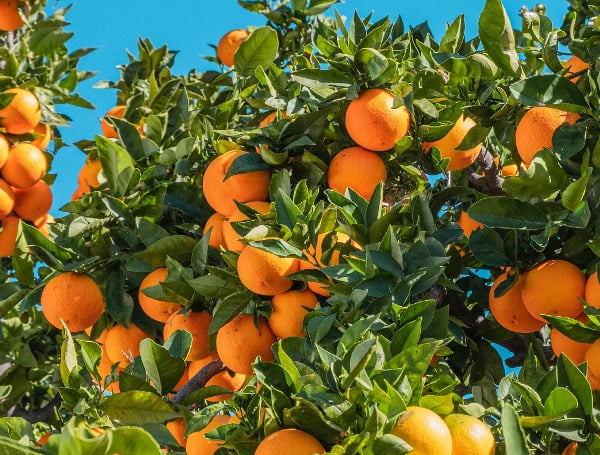Florida’s citrus industry, once a cornerstone of the state’s economy and identity, is facing a steep decline, according to a new report by Florida TaxWatch. The report, The Continuing Decline of Florida’s Citrus Industry, sheds light on the challenges threatening the sector, including diseases, natural disasters, and rising production costs.
As of 2021, Florida’s citrus industry contributed $7 billion to the state’s economy and supported over 32,000 jobs. However, the state has ceded its position as the nation’s top orange and grapefruit producer to California. The U.S. Department of Agriculture (USDA) forecasts that Florida will produce only 12 million boxes of oranges and 1.2 million boxes of grapefruits during the 2024-25 season—a 33% drop from the previous year.
READ: UF/IFAS Field Days: Boosting Agricultural Knowledge For Florida Growers
Florida TaxWatch President and CEO Dominic M. Calabro emphasized the urgency of the situation: “Citrus diseases and hurricanes have been devastating, and the declining production reflects the enormous challenges this industry faces.”
The report identifies citrus greening as the primary culprit behind the industry’s decline. A 2019 survey by the University of Florida’s Institute of Food and Agricultural Sciences revealed that 80% of citrus trees in Florida were infected with the disease. The USDA estimated a 75% reduction in citrus production and a doubling of production costs between 2005 and 2015 due to citrus greening.
Despite spending over $45 million combating citrus diseases from 2007 to 2015, the Florida Department of Citrus has been unable to stop the spread of citrus greening. Many growers are left with little hope for a resolution, according to the report.
READ: Hurricane Helene: Florida Ag Production Losses Top $40M, UF Economists Estimate
The citrus industry has faced challenges long before the onset of citrus greening. Frequent freezes in the late 19th and 20th centuries wiped out large swathes of groves. In 1989, a devastating freeze destroyed 30% of the state’s citrus crop. More recently, hurricanes have delivered significant blows, with Hurricane Irma causing $490 million in losses in 2017 and Hurricane Ian contributing to $247 million in damages in 2022.
This year, Hurricanes Helene and Milton further reduced the forecast for orange and grapefruit production, slashing millions of boxes from projected totals.
The decline in Florida’s citrus production has also led to changes in the market. Brands like Florida’s Natural, once known for their “100% Florida orange juice,” have begun blending juice from Mexico and Brazil due to local shortages. Consumer surveys show a preference for the distinct flavor of Florida oranges, highlighting the potential long-term impact on the state’s reputation.
READ: University Of Florida SmartAg Certificates Prepare Students For Agriculture’s AI Job Market
The report underscores the need for bold and innovative solutions to save Florida’s citrus industry. Short-term measures have proven inadequate, and many researchers argue that developing disease-resistant citrus varieties is the only sustainable solution. However, such efforts require significant investment, which many growers cannot afford.
Florida TaxWatch Executive Vice President Jeff Kottkamp noted, “For the citrus industry to survive, strategic planting, scientific advancements, and increased awareness of production challenges are crucial.”
As Florida’s citrus industry faces mounting pressure, the report calls for a coordinated effort to revitalize the sector and preserve its legacy as a vital part of the state’s economy and culture.
Please make a small donation to the Tampa Free Press to help sustain independent journalism. Your contribution enables us to continue delivering high-quality, local, and national news coverage.
Connect with us: Follow the Tampa Free Press on Facebook and Twitter for breaking news and updates.
Sign up: Subscribe to our free newsletter for a curated selection of top stories delivered straight to your inbox.


